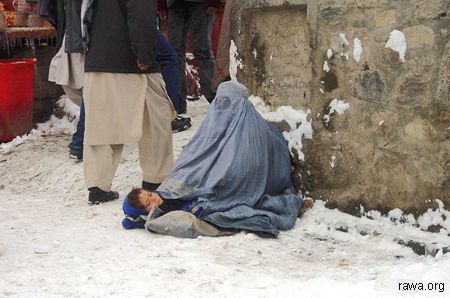Afghanistan facing health disaster worse than the Tsunami - Minister
UNICEF: Afghanistan has the fourth highest under five mortality rate in the world
Health Minister: Around 700 children under the age of five die every day in Afghanistan
IRIN News, April 8, 2005
KABUL, 8 April (IRIN) - As Afghanistan marked World Health Day on Thursday, the country's health minister, Dr Sayed Mohammad Amin Fatimi, said it was facing a disaster worse than the Tsunami that hit Indian Ocean nations late in 2004 and killed more than 300,000 people.
|
Tragic facts:
| |
|
AlertNet, June 20, 2005 |
"We are currently being faced with a silent emergency which is heartbreaking and a big tragedy, it is worse than the Tsunami disaster," Fatimi told IRIN in the capital Kabul.
The minister estimates that around 700 children under the age of five die every day in Afghanistan due to preventable diseases and one woman dies every 20 minutes due to complications in pregnancy and childbirth.
Lack of resources and trained medical personnel, along with low levels of awareness and cultural factors, were the main reasons for the alarming figures in a country still recovering from nearly three decades of conflict and international isolation.
"Traditionally in rural areas people won't let women to be checked by male doctors," he said, adding that of just 3,000 doctors in the entire country, only one in six was female. "We need nearly 10,000 midwives and at the same time up to 10,000 female health workers," the minister said.
"To stand by and allow a preventable disaster from occurring is unconscionable…. The long-term consequences for Afghanistan will overturn much of the progress made in recent years," Ameerah Haq, the deputy Special Representative of the United Nations Secretary-General said.
According to the United Nations Children's Fund (UNICEF) Afghanistan has the fourth highest under five mortality rate in the world. Diarrhoeal diseases are recognised as the main killer of children, caused by limited access to safe water, sanitation and poor hygiene practices.
"It is a very serious situation not only in terms of health but also because of its impact on socio-economic and development issues," Edward Carwardine, a spokesman for UNICEF, told IRIN.
